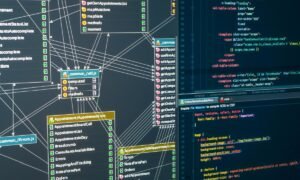The Age of Decentralized Artificial Intelligence

How Generative AI and Decentralized AI are Changing Industries
The digital assets sector is transforming rapidly, largely due to the rise of generative AI (GenAI). This merging of blockchain technology and artificial intelligence (AI) is not only enhancing existing industries but also reshaping operational strategies for organizations across the board. As companies implement GenAI, they encounter various challenges including privacy concerns, security risks, and intellectual property (IP) issues. Addressing these matters is essential to prevent legal complications while tapping into the immense potential of AI systems.
Adding another layer of complexity, decentralized AI (deAI) has emerged as a novel concept at the nexus of blockchain and AI. Powered by cryptocurrencies and tokens, deAI is creating both challenges and opportunities for governance in the AI ecosystem. The unique attributes of deAI necessitate a strong governance framework as it becomes increasingly influential in AI development.
Understanding Decentralized AI (DeAI)
DeAI represents a blend of AI capabilities and blockchain technology. It often utilizes AI crypto tokens that facilitate transactions in its ecosystem. These tokens play multiple roles, such as:
- Access to AI Services: Tokens provide users with the ability to engage with AI-driven applications.
- Encouraging Participation: They allow users to take part in collaborative networks, enhancing interaction and innovation.
- Governance Participation: Token holders can take part in crucial decision-making processes affecting the ecosystem.
Compared to centralized GenAI models like ChatGPT from OpenAI and Google’s Gemini, deAI systems offer several advantages, including:
- Transparency: Blockchain technology ensures that all transactions are visible in real-time.
- Decentralized Control: Power is distributed, reducing the risk of centralized entities monopolizing the ecosystem.
- Inclusivity: Different users, developers, and even autonomous AI agents can collaborate and learn from each other within a shared framework.
Some prominent deAI projects that exemplify these benefits include SingularityNET (AGIX) and Fetch.ai (FET). SingularityNET focuses on open-source research to advance deAI technologies, while Fetch.ai creates a marketplace that connects autonomous AI agents.
Legal Challenges in the Age of DeAI
While deAI platforms offer several benefits, they also introduce unique considerations for AI governance, particularly around intellectual property and data ownership. Recent copyright disputes involving centralized AI models have highlighted tensions between firms that use extensive datasets for training and the original data providers. These disputes have even resulted in lawsuits, where creators have claimed unauthorized use of their works for training AI.
To address these challenges, deAI platforms utilize blockchain technology to prioritize user control and fairly compensate data contributors. A notable example is Sahara AI, which creates a decentralized platform for users to collaboratively develop and monetize AI models, reducing the dominance of organizations over data.
Governance Issues in Decentralized AI
DeAI platforms promise a more transparent and inclusive AI ecosystem, yet they present significant governance challenges. Given that these platforms often operate within decentralized frameworks, they frequently fall into regulatory gray areas. Existing laws typically assume a centralized entity responsible for data protection, complicating compliance for decentralized systems governed by consensus protocols without a clear “controller.”
This lack of a centralized authority raises questions about how these platforms can align with the established legal expectations designed primarily for centralized entities. Additionally, technical issues such as scalability present obstacles for deAI adoption. The underlying blockchain infrastructure can struggle to efficiently handle large-scale AI applications, which may slow down its growth compared to centralized models.
The challenge remains whether deAI can overcome these hurdles to effectively compete with dominant centralized GenAI platforms. To achieve their potential, deAI projects must navigate complex legal frameworks and address scalability challenges, which will be critical for their success in reshaping the AI landscape.





